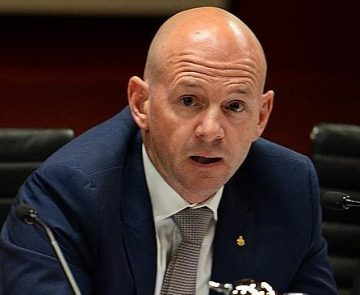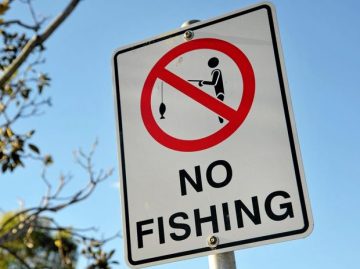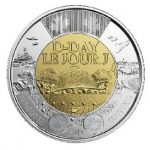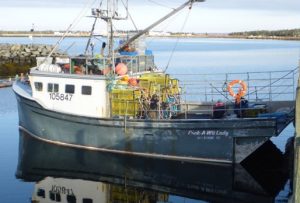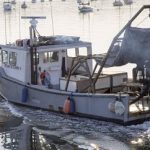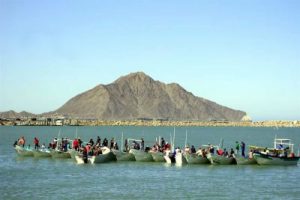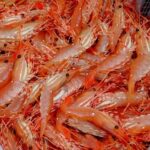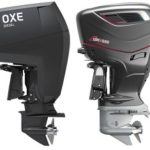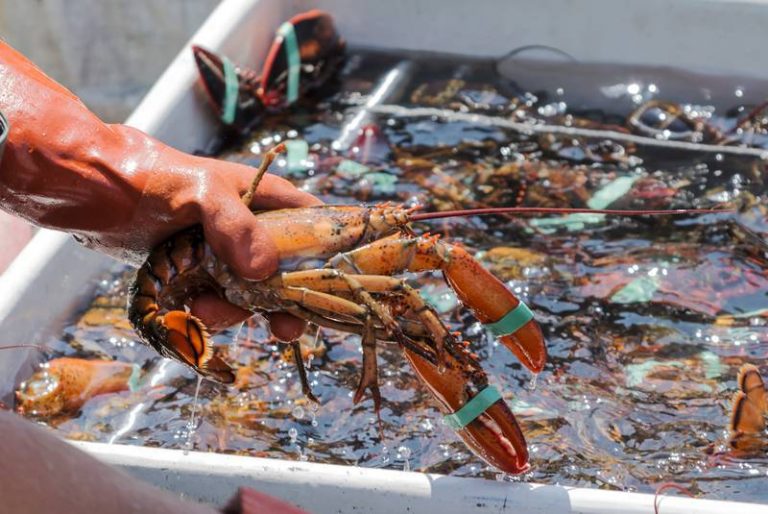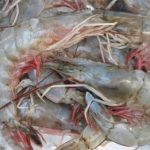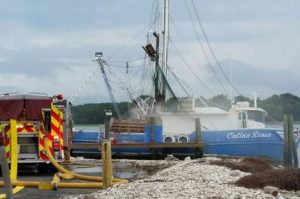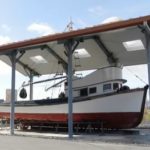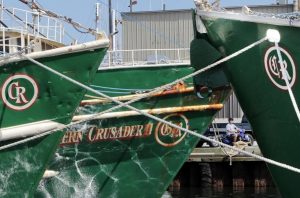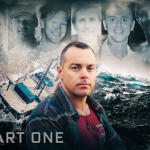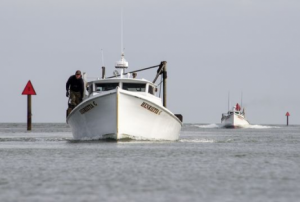Search Results for: Catch Shares
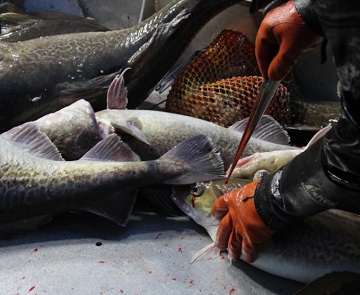
Catch Shares: Commercial trawlers to transition to quota system for Bering Sea and Aleutian Islands cod harvests
Starting in January, the fleet will fish under a “rationalization” system where each catcher vessel will have a maximum catch limit, which will be assigned through quota. The new regulations will require vessels trawling for cod in the area to form cooperatives, and quota will be administered through each co-op. Previously, the entire fishery had a total allowable catch that had to be caught within a certain amount of time. NOAA said this is the first time a catch share program has been implemented in Alaska since 2012. >>click to read<< 09:31
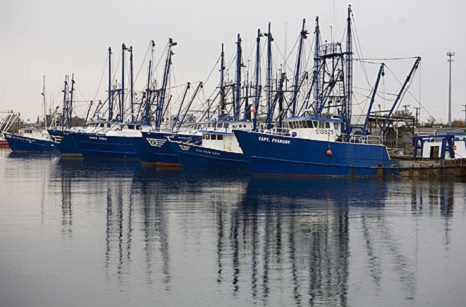
Untangling catch shares with Lee van der Voo – Catch shares have changed fisheries and fishing communities across the U.S.
I recently saw some great reporting by the New Bedford Light and ProPublica about how the billionaire Dutch family that owns Blue Harvest Fisheries has emerged as a force in groundfish fishing off the coast of Massachusetts. These are very wealthy, powerful equity groups and corporations that are acquiring access to the fisheries and passing the cost of owning them and fishing them onto fishermen. There’s been profound disenfranchisement of people who used to have a more personal stake in fishing and seafood. Everyone from indigenous communities in Southwest Alaska whose history with halibut goes back to the beginning of time to small-boat, family operations around the United States everywhere have been losing access. Whole communities have fallen apart over that. >click to read< 08:15
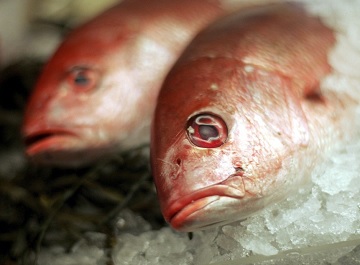
Catch Shares Enable Wealthy Landlords to Gobble Up Local Fisheries
A recent investigative report has reignited public discussion over catch shares, a controversial approach to fisheries management that privatizes the rights to fish. The investigation exposed how Blue Harvest Fisheries, owned by a billionaire Dutch family, became the largest holder of commercial fishing rights in New England, benefiting from lax antitrust regulations and pilfering profits from the local fishermen who work under them. As a commercial fisherman in Mississippi, I know these dynamics go well beyond New England. Here in the Gulf of Mexico, private equity firms and other large investors have come in and gobbled up the rights to fish, driving up the cost of fishing access and making it prohibitively expensive for fishermen like me to harvest fish in our own backyards. >click to read< 07:55
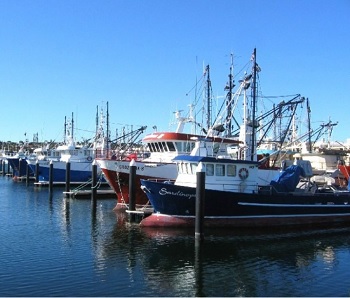
South Australian reforms (catch shares) to put two-thirds of local commercial fishers out of business
A petition to address “loopholes” in the South Australian Government’s Marine Scalefish Fishery reforms has been launched by stakeholders who believe the changes will render the majority of local commercial fishers unviable. With just four days until the Government’s licence buyback scheme finishes, the Marine Fishers Association (MFA) has warned licences are at risk of being bought up by corporate traders,, “Unless loopholes are addressed, over two-thirds of our local commercial fishers will be unable to remain in business and South Australia risks losing its local fishing industry forever,” the MFA said. “This has already happened in other industry species; offshore and interstate investors already control over 65 percent of our rock lobster industry.” >click to read< 13:40
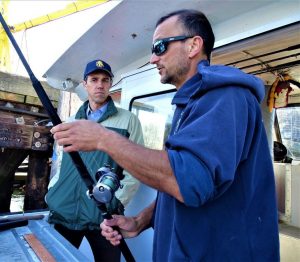
New England Fishmongers say catch shares are driving them out of business
If things can’t turn around for Capt. Tim Rider, the owner of New England Fishmongers, he and his business partner will be out of business at the end of this month.,,, Beto,,, The biggest economic hurdle for Rider, who still uses a rod and reel to bring in most of his fish, is catch shares. That’s when part of a share of a species of fish is allocated to individual fishermen or groups. In most cases, fishermen or groups can buy or sell or lease shares. “Someone owns the rights to the fish and can sell the rights to the highest bidder,” >click to read< 18:40
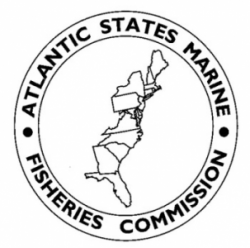
Catch Shares? NOAA Seeks Comments on a Control Date for the American Lobster Fishery
NOAA is seeking comments on a control date (a date that may be used to establish eligibility) of April 29, 2019 for the American lobster fishery, as we consider ways to reduce threats of entanglement by fixed-gear fisheries to North Atlantic right whales.,,, Following the TRT meeting the Atlantic States Marine Fisheries Commission’s Lobster Management Board established a control date of April 29, 2019, and recommended that NOAA Fisheries do the same for federal waters. We are notifying the public that we may develop a future rulemaking to complement any actions taken by the Commission, and that future participation in the fishery may be based on participation as of April 29, 2019. >click to read< 10:39
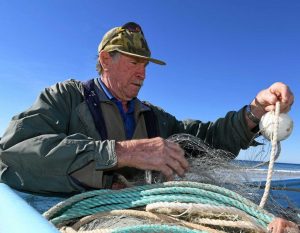
Catch Shares – Veteran commercial fishers fear the worst for industry
Third generation fisherman Kevin Cannon has been net fishing on the Coast for 55 years, but is “demoralised” that a quota system proposed for the region’s popular species. Mr Cannon said flathead, bream, whiting, taylor and barramundi – “bread and butter” fish – were all some of the species included which would de-value his licence by “up to 60 per cent”. Agricultural Industry Development and Fisheries Minister Mark Furner said many fisheries in Australia and around the world used the proposed system where individuals were allocated a share of the stock. (standard EDF line), “This provides security of access and allows them to plan their businesses,” >click to read< 08:51
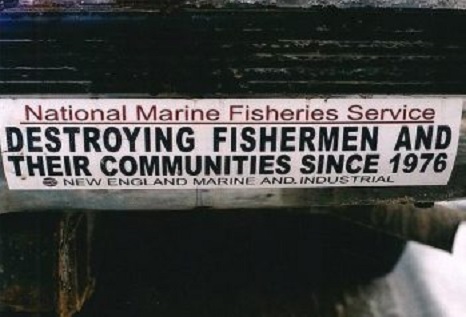
How to wreck an industry – Catch shares lead to consolidation of Alaskan fisheries
A recent study documenting consolidation and specialization in Alaska’s fisheries over the past three decades illustrates a broader trend taking hold in coastal communities across the country. Catch share programs, a new fisheries management system, are turning fishing rights into tradable commodities, driving up the cost to fish and consolidating fishing rights into the hands of a few wealthy owners. For instance, in Alaska’s Bering Sea crab fishery, just four companies own 77 percent of the rights to fish a single crab species. >click to read<11:30
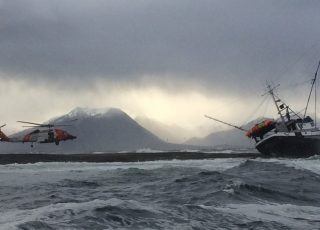
Catch Shares – Costs rise while values fall; season starts uncertain during shutdown
Fishermen in Alaska who own catch shares of halibut, sablefish and Bering Sea crab will pay more to the federal government to cover 2018 management and enforcement costs for those fisheries. ,, “The value of the halibut fishery was down 24 percent year over year, while sablefish was down 21 percent,” Greene said, adding that the decreases stemmed primarily from lower dock prices. ,,, Fish shutdown shaft-Hundreds of boats that are gearing up for the January start of some of Alaska’s largest fisheries could be stuck at the docks due to the government shutdown battle between President Donald Trump and Senate Democrats. >click to read<14:40
Catch Shares – New Zealand’s fisheries quota management system: on an undeserved pedestal
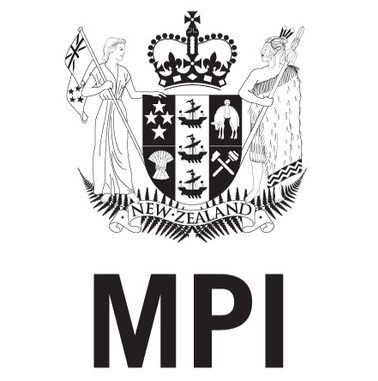 In popular imagination, New Zealand’s fisheries management system is a globally recognised story of sustainability, reflecting a “clean and green” environmental ethos. Indeed, New Zealand’s fisheries have been ranked among the best managed in the world – an accolade based on the early and wholehearted adoption of a Quota Management System (QMS). This perception is echoed in a recently published article, but we take issue with the methodology and its conclusions. Claims that New Zealand’s QMS is an unmitigated success simply do not match the facts. click here to read the story 18:32
In popular imagination, New Zealand’s fisheries management system is a globally recognised story of sustainability, reflecting a “clean and green” environmental ethos. Indeed, New Zealand’s fisheries have been ranked among the best managed in the world – an accolade based on the early and wholehearted adoption of a Quota Management System (QMS). This perception is echoed in a recently published article, but we take issue with the methodology and its conclusions. Claims that New Zealand’s QMS is an unmitigated success simply do not match the facts. click here to read the story 18:32
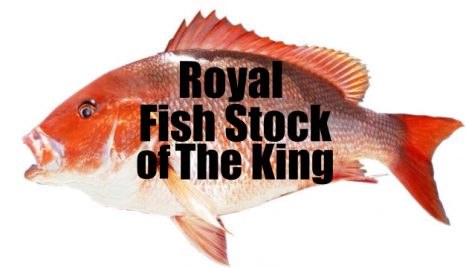
Brad Gentner: It’s time to rethink ‘catch shares’
Catch shares in marine fisheries is a concept unfamiliar to most people, and it is probably completely alien to most hunters and anglers in this country. It is a system of wildlife management that bestows some percentage of a public marine resource, like red snapper in the Gulf of Mexico, to private businesses for free, to use and sell for their own profit. It was thought that by giving away ownership rights to individuals, the fishery would consolidate and ultimately become easier to manage. While the same number of fish would be caught, the benefits of funneling access to the resource through fewer entities was thought to remove some of the uncertainty in the industry and thus would be worth the price of privatizing a public resource for free. While catch shares are still the darling of some fisheries economists, there is a growing backlash against this management tool worldwide for a variety of reasons. At the heart of these complaints is fleet and wealth consolidation, extraction of public wealth for private profit, and failure to capitalize share-cost into production costs. click here to read the op-ed 21:46
CATCH SHARES – NOT A VIABLE OPTION FOR THE NORTHEAST
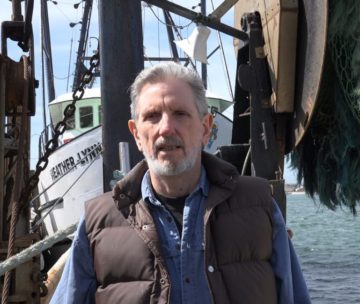 Theoretical constructs that might hold together logically and appear sound often quickly disintegrate in the atmosphere outside their esoteric bubble. This was certainly the case for catch shares or transferable quota management in the New England groundfishery. Catch shares in New England disintegrated almost upon entry. What are catch shares and where did they come from? Catch shares or the commoditization of the fish poundage to be caught, or the ownership of the “right” to harvest a certain portion of the government managers’ scientifically sanctioned total yearly catch, is a construct of “free market environmentalism” theory. The “enviropreneurs” or “enviro-capitalists” claim that ownership equals good stewardship, equals profitability. This privatization push is actually an idea of economics, claiming production “efficiency”, and not one of fishery conservation—although the sales pitch promotes this scheme as the answer to “overfishing”, and just in the nick of time. Click here to read the article 14:58
Theoretical constructs that might hold together logically and appear sound often quickly disintegrate in the atmosphere outside their esoteric bubble. This was certainly the case for catch shares or transferable quota management in the New England groundfishery. Catch shares in New England disintegrated almost upon entry. What are catch shares and where did they come from? Catch shares or the commoditization of the fish poundage to be caught, or the ownership of the “right” to harvest a certain portion of the government managers’ scientifically sanctioned total yearly catch, is a construct of “free market environmentalism” theory. The “enviropreneurs” or “enviro-capitalists” claim that ownership equals good stewardship, equals profitability. This privatization push is actually an idea of economics, claiming production “efficiency”, and not one of fishery conservation—although the sales pitch promotes this scheme as the answer to “overfishing”, and just in the nick of time. Click here to read the article 14:58
CATCH SHARES NOT A VIABLE OPTION FOR THE NORTHEAST
 The following is an excerpt from an article I was working on for a [email protected] series on catch shares. It got too long to post, so it sits in my computer files and I thought I’d get bits of it out—just for the Halibut? (More will follow) Dick Grachek
The following is an excerpt from an article I was working on for a [email protected] series on catch shares. It got too long to post, so it sits in my computer files and I thought I’d get bits of it out—just for the Halibut? (More will follow) Dick Grachek
CATCH SHARES NOT A VIABLE OPTION FOR THE NORTHEAST
Theoretical constructs that might hold together logically and appear sound often quickly disintegrate in the atmosphere outside their esoteric bubble. This was certainly the case for catch shares or transferable quota management in the New England groundfishery. Catch shares in New England disintegrated almost upon entry.
What are catch shares and where did they come from?
Catch shares or the commoditization of the fish poundage to be caught, or the ownership of the “right” to harvest a certain portion of the government managers’ scientifically sanctioned total yearly catch, is a construct of “free market environmentalism” theory. The “enviropreneurs” or “enviro-capitalists” claim that ownership equals good stewardship, equals profitability. This privatization push is actually an idea of economics, claiming production “efficiency”, and not one of fishery conservation—although the sales pitch promotes this scheme as the answer to “overfishing”, and just in the nick of time.
The Claim: Fish populations worldwide are imperiled from overfishing.
The Remedy: Individual Transferrable Fishing Quotas, or catch shares, will stop overfishing by making fishing operations more “efficient”, therefore making fishermen more profitable, and therefore they will become more “responsible stewards”, and therefore sustain the health of the resource.
Catch shares management is the private ownership of the shares of a natural resource (sort of an ocean eminent domain grab). Catch shares are an extension of the faulty deregulated free-market theories of economists such as Milton Friedman, which in this case have evolved into the concept of Free Market Environmentalism which is the approach of …ownership equals responsibility; or render a commodity profitable enough and somehow the owners and the mechanism of market capitalization will automatically stabilize and sustain that resource or industry (think about the corporate “stewardship” of our resources, so far). For a natural resource such as a fishery this thinking is based on the following principles:
– Private property rights encourage stewardship of resources
– Market incentives spur individuals to improve environmental quality
– Government controls and subsidies often degrade the environment
– Polluters should be liable for the harm they cause to others
(This “enviro-capitalist” information can be found at PERC, Property and Environment Research Center, a “think tank” located in Bozeman, Montana, which proclaims itself as having …“championed the successful approach [ITQ’s] to eliminating overfishing” http://www.perc.org/search?search_api_views_fulltext=ifq+for+fisheries&=Search )
So, theoretically, everyone then goes home happy: the fish are saved, the fishermen are profitable and much safer, the consumers get their seafood dinner, and the investors see a 400% return. (This 400% promise of riches was a prediction made by David Festa, the Environmental Defense Fund Finance V.P. during a Milken Institute Conference—he was raising money for catch shares in order to “grease the skids”, as he pitched to investors, months before catch shares were officially approved by NOAA.)
None of those catch shares promises actually panned out (I don’t think even for the investors), not in New England at any rate—and I understand a few other fisheries see catch shares as a failure as well.
Catch shares were considered for the New England Groundfishery initially in 1995. However, after some research and deliberation, the Staff of the New England Fisheries Management Council concluded that although these ITQ programs did improve the economic efficiency of some fisheries, there was little evidence that they improved the biological condition of the stocks. They specified that the Catch Shares or ITQ scheme was not practical for the diverse multi-species nature of the New England Groundfishery. They also noted that groundfish stocks at that time were in trouble worldwide, including those managed with ITQ’s or catch shares.
The New England Council and the National Marine Fisheries Service did not revisit the idea of catch shares again for several years. Rejecting catch shares, especially for New England, was intelligent and sober management at that time. However, in the early 2000’s after an extensive media advertising campaign by major foundation funded environmental NGOs, making dire predictions for the fish stocks and pitching a “new approach” as the only way out, catch shares were back in the news—and eventually back “on the management table”.
However, nothing in the fishery world that made catch shares management untenable in 1995 had actually changed—other than a well-orchestrated and well-funded all out media marketing blitz to push them. In fact, the stocks at this time (2009-2010) were in the best shape since NOAA began keeping records. http://www.nmfs.noaa.gov/sfa/fisheries_eco/status_of_fisheries/archive/2009/fourth/q4_2009_fssi_summary_changes.pdf )
The “conservationist” media and lobbying campaign to market and then to install catch share privatization involved tens of millions of dollars of “altruistic investments” by The Walton Foundation, Pew, Packard, Betty Moore, and a few other wealthy “captains of industry” Foundations, then funneled through the public relations departments of “environmentalist” NGOs, such as, the Environmental Defense Fund, Oceana, Ocean Conservancy, etc.
Stop efforts to limit the number of charter and head boats — the first step toward for-hire catch shares!
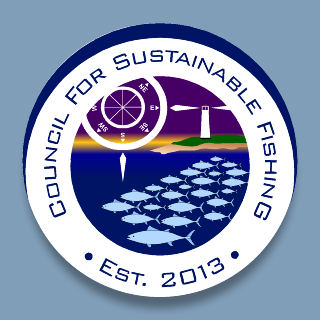 This Wednesday, June 13th, the South Atlantic Fishery Management Council will again consider snapper-grouper for-hire limited entry at its meeting in Ponte Vedra, Florida, so it’s important to tell the SAFMC that you oppose limited entry as soon as possible. Please click here today to submit a comment — just a sentence or two will do. Limited entry will set up a “stock market” for permits, setting the stage for charter and head boat catch shares — privatizing access to the fishery –- something that will destroy jobs and hurt fishing communities. click here to read the notice click here to make E-public comment by noon, 6/15/2017 07:32
This Wednesday, June 13th, the South Atlantic Fishery Management Council will again consider snapper-grouper for-hire limited entry at its meeting in Ponte Vedra, Florida, so it’s important to tell the SAFMC that you oppose limited entry as soon as possible. Please click here today to submit a comment — just a sentence or two will do. Limited entry will set up a “stock market” for permits, setting the stage for charter and head boat catch shares — privatizing access to the fishery –- something that will destroy jobs and hurt fishing communities. click here to read the notice click here to make E-public comment by noon, 6/15/2017 07:32
Did catch shares enable the Codfather’s fishing fraud?
 Carlos Rafael’s guilty plea late last month of falsifying fish quotas, conspiracy and tax evasion has prompted renewed criticism of one of the most contentious parts of the New England groundfish fishery’s management system: catch shares.Rafael, who dubbed himself “The Codfather,” owned one of the largest commercial fishing fleets in the United States, and for some community fishermen in New England, his case represents consolidation run amok. Consolidating fishing permits, they say, also centralizes power, making fraud more likely. But for environmentalists who support catch shares as a way to reduce overfishing, consolidation isn’t inevitable. They say Rafael’s case highlights the need for better monitoring and fraud protections to prevent the sort of cheating that can plague any fishery management system. click here to read the rest 19:09
Carlos Rafael’s guilty plea late last month of falsifying fish quotas, conspiracy and tax evasion has prompted renewed criticism of one of the most contentious parts of the New England groundfish fishery’s management system: catch shares.Rafael, who dubbed himself “The Codfather,” owned one of the largest commercial fishing fleets in the United States, and for some community fishermen in New England, his case represents consolidation run amok. Consolidating fishing permits, they say, also centralizes power, making fraud more likely. But for environmentalists who support catch shares as a way to reduce overfishing, consolidation isn’t inevitable. They say Rafael’s case highlights the need for better monitoring and fraud protections to prevent the sort of cheating that can plague any fishery management system. click here to read the rest 19:09
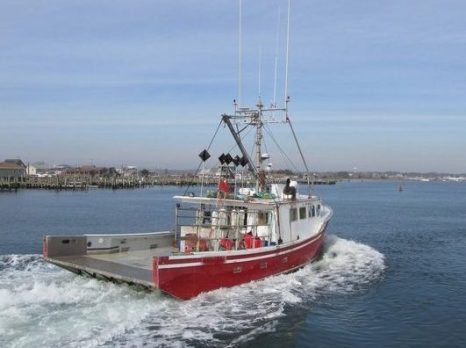
Catch Shares? – Researchers Fear Industrialization of Maine Lobster Fleet
Unlike most fisheries in the world, the lobster industry is actually experiencing an unprecedented boom despite centuries of sustained harvesting. Last year, the lobster catch was a record 130 million pounds, marking the fifth straight year the annual catch went over 120 million pounds, and over six times more than the long-term average for the state. The recent lobster boom, according to the Gulf of Maine Research Institute, is likely primarily due to warmer ocean temperatures as younger lobsters are reaching sexual maturity faster in warmer waters. But it’s also because, unlike the ground fishery, the state long ago took a proactive approach to conserving the resource. “There are some interesting differences between those two fisheries in terms of the regulations we put in place very early on in the lobster fishery,” said fisheries researcher Patrick Shepard at the Penobscot Marine Museum’s “Our Evolving Fisheries History Conference” in Belfast on April 8, “but there are also some interesting parallels to what might be happening as far as technological advances.” click here to read the article 13:49
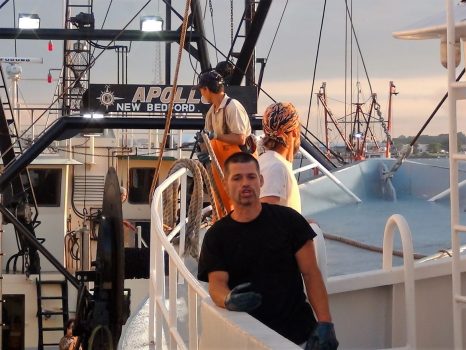
A look back at the evolution of Catch Shares
In 2010 CSF board member Nils Stolpe conducted some exhaustive research into catch shares as a management tool and given what has transpired since it is worth looking over his findings today. Here, for example is a prophetic quote from the NEFMC’S June 2010 Draft Environmental Impact Statement for Amendment 15 to the Council’s Sea Scallop Fishery Management Plan : “…consolidation measures like ITQs, but also more generally leasing and stacking, tend to have their negative impacts on those less powerful segments of the fishing industry, namely the crew, or the small business owners without a fleet of vessels or vertically integrated business. Those who are better able to take advantage of measures like leasing or stacking are then increasingly able to exert control in various markets, such as leasing quota, hiring crew, or even affecting prices that fishermen receive for their product. These kinds of changes, in turn, affect the structure of communities—through changing relations between people and shifts in dominant values—and affect the viability of fishing communities as some are disproportionally impacted by geographic shifts in fishing businesses.” That was about the scallop fleet but the impact is now decimating single boat owners in our New England groundfishery. The complete report (three papers) is included here 14:28
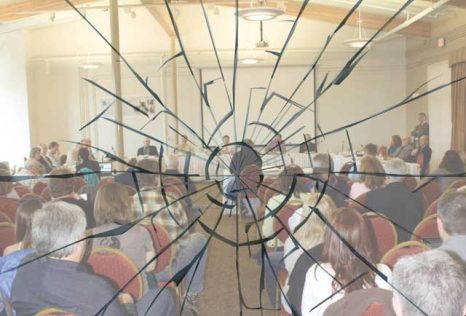
Wow! Council cracks up over catch shares
Everyone in the Gulf of Alaska agrees on one thing: it was the other side’s fault. Depending on who you ask, catch shares are evil incarnate or an angel of good management. Depending on who you ask, they’ll either save Kodiak or kill it. Depending on who you ask, it’s either the State of Alaska’s fault or its credit for not allowing catch shares in the Gulf of Alaska’s groundfish fishery. And depending on who you ask, they’ll either come up again or get sliced up into a handful of other little nibbles at the Gulf of Alaska bycatch problems. Either sighs of relief or defeat leaked from every mouth in the room on this past Dec. 12 when the North Pacific Fishery Management Council, which oversees all federal fisheries from three to 200 miles off the Alaska coast, indefinitely tabled a complex range of options for the Gulf of Alaska groundfish fisheries. Read the story here! 21:17
Catch Shares – ‘I have no fingernails’: Paul’s distress as livelihood slips away
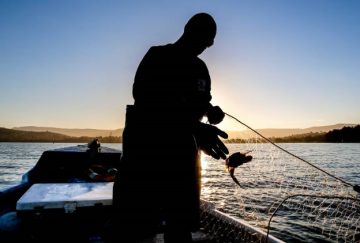 Those are the words of Illawarra commercial fisherman Paul Heron – spoken amid a heartfelt plea against planned NSW government changes that will likely see him without a job. Those reforms – part of the government’s Commercial Fisheries Business Adjustment Program, announced last year – include the introduction of minimum shareholding from July 2017. That means fishers must hold a certain number of shares to be endorsed to fish. “It is basically going to make a small fisher like me, with a young family and a mortgage – I am two years into my mortgage – we are basically going to lose our house,” he told the inquiry. Minister for Primary Industries Niall Blair told the hearing he had listened to fishers up and down the NSW coast. “The change is difficult, the change is hard, but it is necessary to have an industry going into the future,” Mr Blair said. A man in a suit. Video, read the rest here, including Paul Heron’s submission to the Senate inquiry into commercial fishing in NSW. 14:42
Those are the words of Illawarra commercial fisherman Paul Heron – spoken amid a heartfelt plea against planned NSW government changes that will likely see him without a job. Those reforms – part of the government’s Commercial Fisheries Business Adjustment Program, announced last year – include the introduction of minimum shareholding from July 2017. That means fishers must hold a certain number of shares to be endorsed to fish. “It is basically going to make a small fisher like me, with a young family and a mortgage – I am two years into my mortgage – we are basically going to lose our house,” he told the inquiry. Minister for Primary Industries Niall Blair told the hearing he had listened to fishers up and down the NSW coast. “The change is difficult, the change is hard, but it is necessary to have an industry going into the future,” Mr Blair said. A man in a suit. Video, read the rest here, including Paul Heron’s submission to the Senate inquiry into commercial fishing in NSW. 14:42
No Catch Shares! Gulf rationalization dies a quiet death
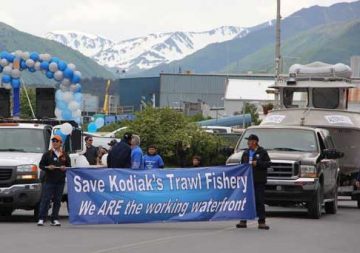 Gulf of Alaska groundfish will remain an open access fishery indefinitely after the North Pacific Fishery Management Council tabled a policy package that has enraged fishermen of all stripes over the last year. Depending on who is asked, the council acted at either its best or its worst with the decision. “The council process didn’t work. They didn’t solve the problem,” said Julie Bonney, executive director of the Groundfish Forum, an industry group of trawlers and processors. “They just took the political part first and ignored the management. I have to keep reminding myself, this isn’t about management. It’s about politics.” Others said the council did exactly what it should have done in the face of so many contentious decisions on which so many people expressed opinions. “I think this is actually the best illustration of council process, rather than the worst,” said Duncan Fields, a Kodiak attorney and former council member who was among the most vocal on this subject. “It shows that one gear group with a particular ideology and particular economic interest with very good advocates can’t just jam something through the council,” he said. “The council allows other participants, small boat fishermen, community, stakeholders to also have a voice, and that voice has said a catch share program is not the best public policy. You don’t always get the result you want.” Read the rest here 20:39
Gulf of Alaska groundfish will remain an open access fishery indefinitely after the North Pacific Fishery Management Council tabled a policy package that has enraged fishermen of all stripes over the last year. Depending on who is asked, the council acted at either its best or its worst with the decision. “The council process didn’t work. They didn’t solve the problem,” said Julie Bonney, executive director of the Groundfish Forum, an industry group of trawlers and processors. “They just took the political part first and ignored the management. I have to keep reminding myself, this isn’t about management. It’s about politics.” Others said the council did exactly what it should have done in the face of so many contentious decisions on which so many people expressed opinions. “I think this is actually the best illustration of council process, rather than the worst,” said Duncan Fields, a Kodiak attorney and former council member who was among the most vocal on this subject. “It shows that one gear group with a particular ideology and particular economic interest with very good advocates can’t just jam something through the council,” he said. “The council allows other participants, small boat fishermen, community, stakeholders to also have a voice, and that voice has said a catch share program is not the best public policy. You don’t always get the result you want.” Read the rest here 20:39
Catch Shares – Fishing Family Devastated by NSW Government Fishery Reforms
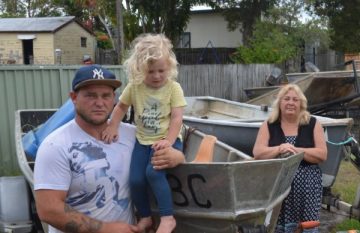 Tears come to Donna Cook’s eyes as she describes the sale of her and her husband’s family fishing business; forced, they say, by the impact of the NSW Government’s fishing reforms. After five generations spanning more than 100 years of working the Macleay, the Cook family sold their Stuarts Point fishing business earlier this year to an investor. “We’ve always been a successful fishing family, we’ve bought a home and raised five kids,” Donna told the Argus. “But we lost 60 per cent of our income from the reforms. “We just couldn’t go on.” The State Government reasons that the reform will ensure economic viability and environmental sustainability for the sector. But Donna said the changes have crippled fishers from around the State, with many forced to sell out to wealthy investors and large scale fishing operations. Catch Shares! Read the story here 09:42
Tears come to Donna Cook’s eyes as she describes the sale of her and her husband’s family fishing business; forced, they say, by the impact of the NSW Government’s fishing reforms. After five generations spanning more than 100 years of working the Macleay, the Cook family sold their Stuarts Point fishing business earlier this year to an investor. “We’ve always been a successful fishing family, we’ve bought a home and raised five kids,” Donna told the Argus. “But we lost 60 per cent of our income from the reforms. “We just couldn’t go on.” The State Government reasons that the reform will ensure economic viability and environmental sustainability for the sector. But Donna said the changes have crippled fishers from around the State, with many forced to sell out to wealthy investors and large scale fishing operations. Catch Shares! Read the story here 09:42
Don’t bite on risky lure of ‘catch shares’
 I can’t think of a more appropriate saying to use than “a wolf in sheep’s clothing” to describe the reality of what the Seafood Harvesters of America want to do with our offshore fisheries. The Post and Courier recently published an article and editorial that bought into the sheep’s clothing side. Year-round fishing and better fisheries data are touted. Who could be against that? But there’s a wolf: privatization of our fisheries through a scheme called “catch shares,” where fishermen and corporations are actually given ownership of our fisheries with shares that can be bought or sold like stock on Wall Street. That’s the real reason for the Seafood Harvesters of America’s existence. They’re working hard to ensure commercial fishermen own our fisheries, and in this case it’s our snapper and grouper, starting with a pilot program that could be considered by the South Atlantic Fishery Management Council and NOAA Fisheries next year. Read the op-ed here 08:02
I can’t think of a more appropriate saying to use than “a wolf in sheep’s clothing” to describe the reality of what the Seafood Harvesters of America want to do with our offshore fisheries. The Post and Courier recently published an article and editorial that bought into the sheep’s clothing side. Year-round fishing and better fisheries data are touted. Who could be against that? But there’s a wolf: privatization of our fisheries through a scheme called “catch shares,” where fishermen and corporations are actually given ownership of our fisheries with shares that can be bought or sold like stock on Wall Street. That’s the real reason for the Seafood Harvesters of America’s existence. They’re working hard to ensure commercial fishermen own our fisheries, and in this case it’s our snapper and grouper, starting with a pilot program that could be considered by the South Atlantic Fishery Management Council and NOAA Fisheries next year. Read the op-ed here 08:02
Catch Shares: NSW fishermen face difficult decisions as deadline looms for reform package
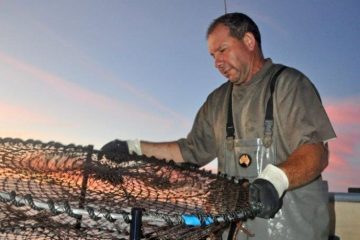 Friday is a big day for New South Wales fishermen. Those that want to leave the industry and take advantage of a government buyback have to decide by that date. Those that want to keep fishing are anxiously waiting to find out if they can buy-up the other’s shares and they are wondering what it will cost them. Peter Ragno fishes out of Wallace Lake near Tuncurry on the Mid North Coast. His family have been fishermen since 1891, catching prawns and mud crabs, mullet, brim and whiting among other species. The government has reduced the quote linked to his shares so just to maintain his business he will need to buy licences worth close to a quarter of a million dollars, money he cannot afford to borrow. Read the rest here 11:54
Friday is a big day for New South Wales fishermen. Those that want to leave the industry and take advantage of a government buyback have to decide by that date. Those that want to keep fishing are anxiously waiting to find out if they can buy-up the other’s shares and they are wondering what it will cost them. Peter Ragno fishes out of Wallace Lake near Tuncurry on the Mid North Coast. His family have been fishermen since 1891, catching prawns and mud crabs, mullet, brim and whiting among other species. The government has reduced the quote linked to his shares so just to maintain his business he will need to buy licences worth close to a quarter of a million dollars, money he cannot afford to borrow. Read the rest here 11:54
Better science and data, not catch shares
 With the exception of three mini-seasons (2012-2014) the red snapper fishery in the South Atlantic has been effectively closed for over six years. By most accounts from fishermen, red snapper are very plentiful – they are routinely encountered while fishermen target other species and divers report large schools. Yet, the stock assessment presented to the South Atlantic Fishery Management Council in June says that red snapper are still overfished and that overfishing is still occurring. This despite a lot of uncertainty about the data used in the assessment. Give the SAFMC credit for not accepting the assessment and asking its Scientific and Statistical Committee to reexamine the assessment and stock status determination this fall. The ongoing saga of the red snapper fishery highlights the fact that stock assessments can be flawed because of the lack of good biological and historical abundance information. In other words, much better science and data on our fisheries is needed. Instead of devoting adequate financial resources into stock assessments, NOAA has spent about $160 million over the last six years pushing its National Catch Share Policy in an effort to privatize fisheries. Studies have shown that catch share programs hurt fishing communities by destroying jobs and don’t provide any biological benefit to fisheries. 10:36
With the exception of three mini-seasons (2012-2014) the red snapper fishery in the South Atlantic has been effectively closed for over six years. By most accounts from fishermen, red snapper are very plentiful – they are routinely encountered while fishermen target other species and divers report large schools. Yet, the stock assessment presented to the South Atlantic Fishery Management Council in June says that red snapper are still overfished and that overfishing is still occurring. This despite a lot of uncertainty about the data used in the assessment. Give the SAFMC credit for not accepting the assessment and asking its Scientific and Statistical Committee to reexamine the assessment and stock status determination this fall. The ongoing saga of the red snapper fishery highlights the fact that stock assessments can be flawed because of the lack of good biological and historical abundance information. In other words, much better science and data on our fisheries is needed. Instead of devoting adequate financial resources into stock assessments, NOAA has spent about $160 million over the last six years pushing its National Catch Share Policy in an effort to privatize fisheries. Studies have shown that catch share programs hurt fishing communities by destroying jobs and don’t provide any biological benefit to fisheries. 10:36
Catch Shares: Commercial fishers on Far South Coast want action on restructure
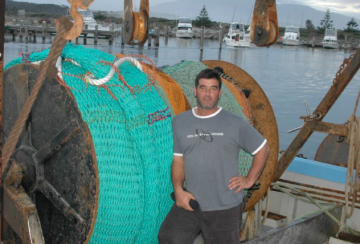 The restructure of the NSW commercial fishing industry is reaching an important milestone with companies and individuals having until tomorrow to decide on whether they take a $20,000 buy-out to exit the industry. NSW Labor called on the State Primary Industries Minister to suspend the restructure process until more information is on the table to assist fishers in making the right decision for themselves, their families, and for the sustainability of the industry in general. But Bermagui Fishermen’s Cooperative managing director Rocky Lagana was of the opposite view and said the three-year restructure process needed to reach a conclusion to afford those who wanted to remain some certainty. Shadow Minister for Primary Industries Mick Veitch however called it policy-on-the-run and said a hastily cobbled together Ministerial press release the day after Labor’s call for a suspension made a few concessions without addressing the real concerns – which are the need for more information, more time and the need to hit the pause button. Read the story here 10:26
The restructure of the NSW commercial fishing industry is reaching an important milestone with companies and individuals having until tomorrow to decide on whether they take a $20,000 buy-out to exit the industry. NSW Labor called on the State Primary Industries Minister to suspend the restructure process until more information is on the table to assist fishers in making the right decision for themselves, their families, and for the sustainability of the industry in general. But Bermagui Fishermen’s Cooperative managing director Rocky Lagana was of the opposite view and said the three-year restructure process needed to reach a conclusion to afford those who wanted to remain some certainty. Shadow Minister for Primary Industries Mick Veitch however called it policy-on-the-run and said a hastily cobbled together Ministerial press release the day after Labor’s call for a suspension made a few concessions without addressing the real concerns – which are the need for more information, more time and the need to hit the pause button. Read the story here 10:26
Catch Shares: After 10-year crab review, NPFMC seeks social impact information. Are they blind?
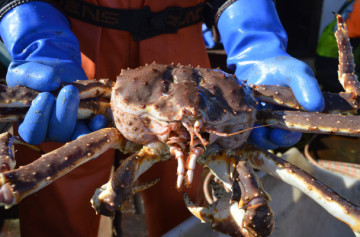 The North Pacific Fishery Management Council approved a 10-year review of rationalization on June 10, the program that ended derby-style crab fisheries in 2005 and gave quota shares to vessel owners, captains and processors. The aim was to reduce overcapitalization and create a safer fishery by allowing crew to fish slower with a guaranteed quota allocation compared to the previous free-for-all. The study – The 10-year review charted a continuation of trends found in the five-year review. Vessel consolidation continued along with quota consolidation, but both somewhat stabilized in the last five years. Fewer people hold quota than before. Each individual quota holder, naturally, holds more quota now than in 2004; 53 fewer people hold Bristol Bay red king crab crew shares now than in 2005. In the two years following rationalization, the crab fleet shrank from 256 vessels in 2004 to 91 in 2006. Read the rest here 12:49
The North Pacific Fishery Management Council approved a 10-year review of rationalization on June 10, the program that ended derby-style crab fisheries in 2005 and gave quota shares to vessel owners, captains and processors. The aim was to reduce overcapitalization and create a safer fishery by allowing crew to fish slower with a guaranteed quota allocation compared to the previous free-for-all. The study – The 10-year review charted a continuation of trends found in the five-year review. Vessel consolidation continued along with quota consolidation, but both somewhat stabilized in the last five years. Fewer people hold quota than before. Each individual quota holder, naturally, holds more quota now than in 2004; 53 fewer people hold Bristol Bay red king crab crew shares now than in 2005. In the two years following rationalization, the crab fleet shrank from 256 vessels in 2004 to 91 in 2006. Read the rest here 12:49
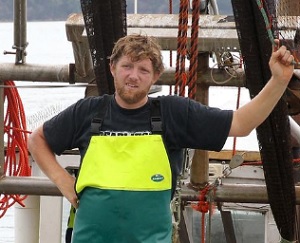
Catch Shares New South Wales Style – Half the Small Boat Fishermen will disappear
MORE than half of the Coast’s 100 commercial fishers are expected to be cut adrift after the state government released its industry reforms last week. Dane Van Der Neut, president of the NSW Wild Caught Fishers Coalition, said the worst fears of local commercial fishers were realised in the Baird Government’s bid to overhaul the $90 million industry. “We’ll now lose over half our fleet, from Tuggerah Lake to the Hawkesbury, because the government wants to corporatise the industry, make all shares equal, and price out the smaller operators,” Patonga-based Mr Van Der Neut said. Terrigal state Liberal MP Adam Crouch hailed the changes as a “new era” for commercial fishing. Read the rest here 08:16
North Pacific Fishery Management Council convenes in Kodiak with Gulf catch shares in focus
The trawl industry already loathes a recent alternative to a North Pacific Fishery Management Council plan . Now the council could add another. The North Pacific Fishery Management Council will meet in Kodiak from June 6-14 to hear a discussion paper that has enraged the trawl industry since late 2015. A new proposal for “innovative policy,” as referred to in the paper, would give the first catch share allocations to Community Fishing Associations to prevent harmful impacts such as the job losses and high cost of entry that have occurred under previous such programs in halibut and crab. This is an official state position, and the North Pacific council holds a six-member majority of the 11-member body that governs federal Alaska waters. Gov. Bill Walker’s administration prioritizes coastal communities’ economic prospects during the state’s oil-driven financial calamity. Part of that stance concerns keeping the fishing industry, the state’s largest private employer, in Alaskan fishermen’s hands. Read the rest here 08:39
. Now the council could add another. The North Pacific Fishery Management Council will meet in Kodiak from June 6-14 to hear a discussion paper that has enraged the trawl industry since late 2015. A new proposal for “innovative policy,” as referred to in the paper, would give the first catch share allocations to Community Fishing Associations to prevent harmful impacts such as the job losses and high cost of entry that have occurred under previous such programs in halibut and crab. This is an official state position, and the North Pacific council holds a six-member majority of the 11-member body that governs federal Alaska waters. Gov. Bill Walker’s administration prioritizes coastal communities’ economic prospects during the state’s oil-driven financial calamity. Part of that stance concerns keeping the fishing industry, the state’s largest private employer, in Alaskan fishermen’s hands. Read the rest here 08:39






